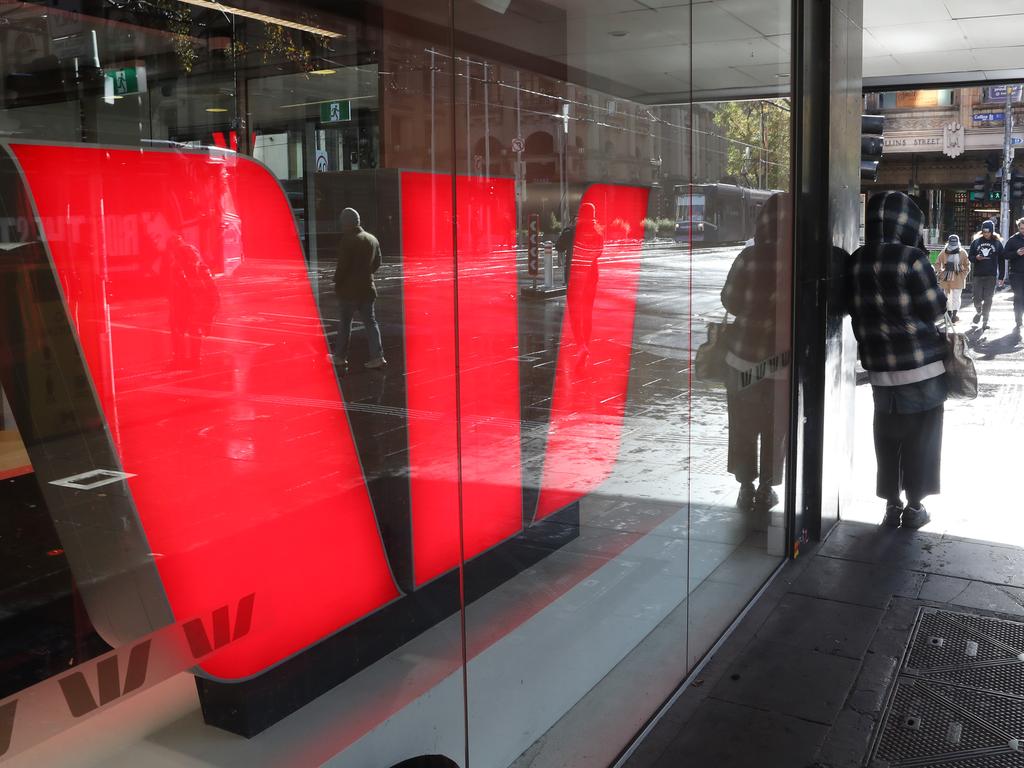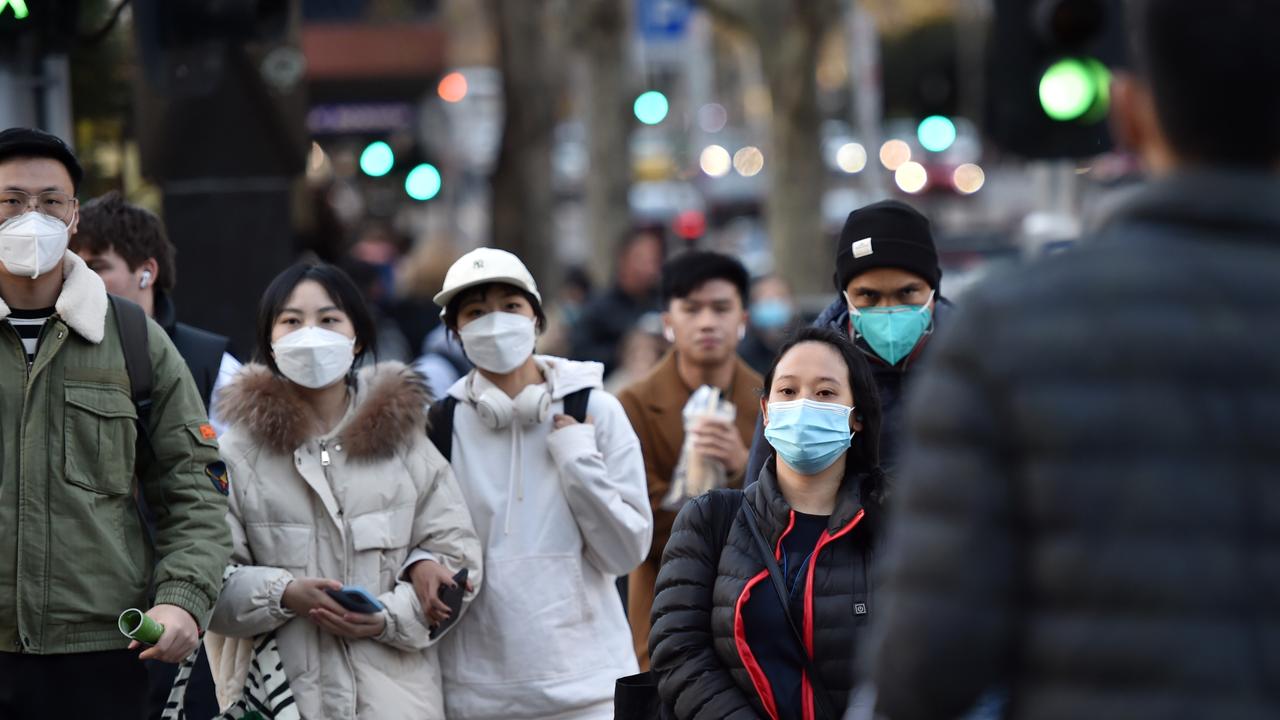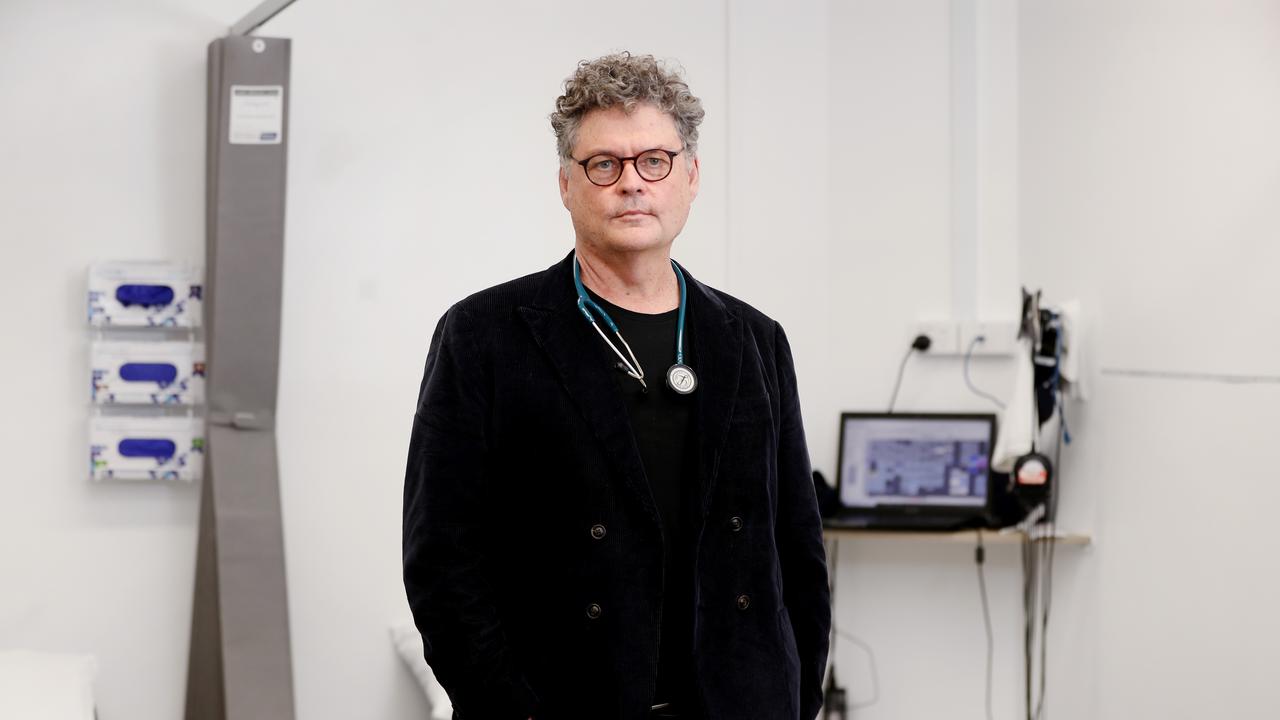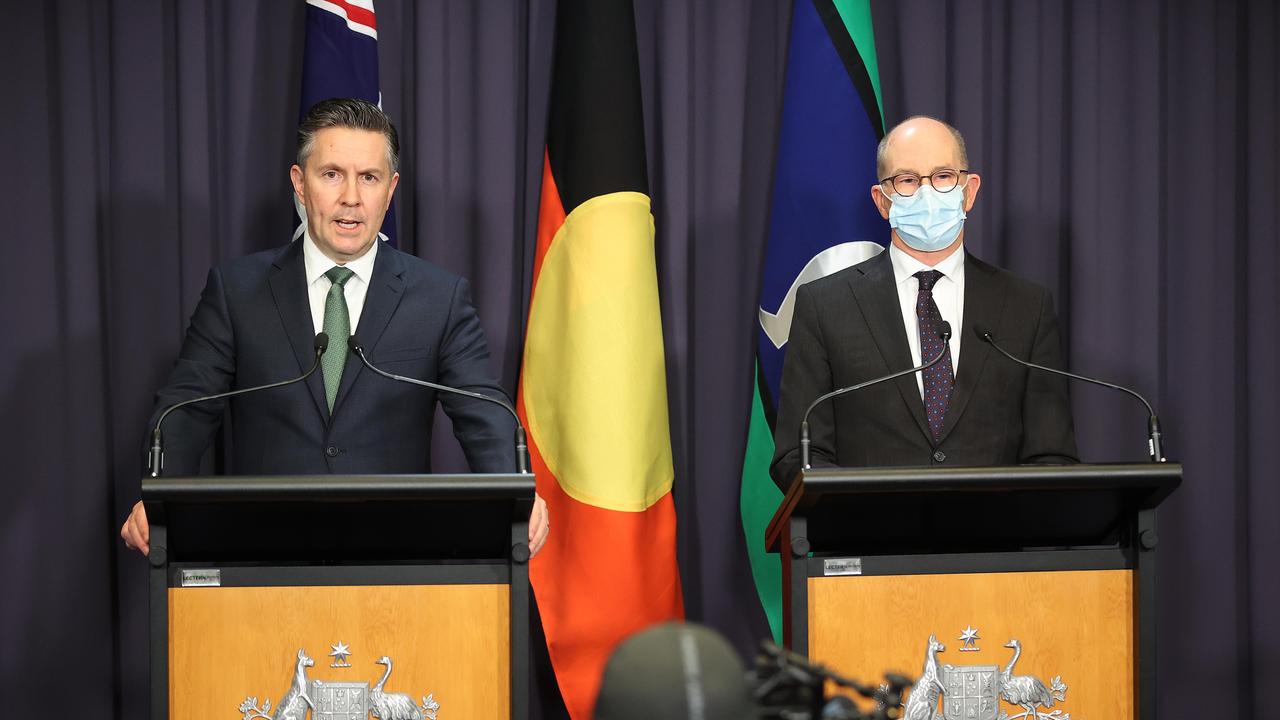Westpac and Telstra advise employees to work from home during Covid surge
Two of Australia’s biggest employers are advising staff to work from home over concerns about rising Covid case numbers.

Two of Australia’s largest employers, Telstra and Westpac, are instructing their staff to work from home where possible due to surging Covid case numbers.
Prime Minister Anthony Albanese told reporters on Tuesday that it’s up to businesses to “get the balance right” on working arrangements.
“Businesses will continue to make those decisions. They need to make them on the basis of safety. But also, for some people, we need to recognise that they can’t work from home,” Mr Albanese said.
Telstra is “strongly encouraging” its staff to work from home if they can, while Westpac said its workers were no longer required to come into the office.
“Earlier this year, we introduced a green, amber, red workplace rating system to help manage our workplace amid changing health settings,” a Westpac spokesperson said.
“Westpac’s workplace setting is currently amber, meaning those employees who can work from home may do so, with no requirement to be in the office.”
Both companies said they would help support employees that were unable to work from home through maintaining Covid-safe work practices.
“We have thousands of team members who can’t work from home, including many of our retail team members and field technicians who are supporting our customers,” Telstra executive Alex Badenoch said.
“We are focused on keeping them safe – including promoting traditional COVID-safe measures and supplying masks and RATs where relevant.”

Health experts and leaders have met to discuss the reintroduction of measures to stop the spread and take pressure of health services.
Chief medical officer Paul Kelly has “strongly recommended” Australians wear masks when in crowded venues and consider working from home, but has stopped short of formally recommending mask mandates.
But, with the worst of the third Omicron wave of the year still to come, it can’t be ruled out.
“I’ve recommended that we need to look at ways of increasing mask use throughout the community, and we have left it there for others to consider the pros and cons of what and how to do that – that’s really a matter for others,” Professor Kelly told ABC Radio.
“Based on science, we know that masks to work to protect individuals and to decrease transmission to others, that masks should be used in indoor settings where there are other people around.
“That’s an important message I think for all leaders to consider their own actions and to see what we can do to influence others.
“Mandates are contentious, as we know. I’m not going to talk to mandates, but my advice is that mask use should increase.”

With around 5200 Covid-19 patients in hospital around the country at the moment, hospitalisations are on track to surpass the January record of 5300.
Royal Australian College of GPs Queensland chair Bruce Willett said there was a high possibility hospitals around the country would crumble under the pressure.
The best way to keep excess pressure off the system, he said, was to work from home if possible, and wear a mask.
“There’s a feeling of Covid complacency … And there’s a feeling it’s inevitable to get Covid. I’m not sure that’s true,” Dr Willett told NCA NewsWire.
“The risk is if we all get it at once, then the health facilities are very much at the risk of getting overwhelmed.
“The hospital system just may not cope if we don’t flatten the curve and get people treatment in a timely manner.”

Dr Willett said he was alarmed at the rate at which elective surgeries were again getting cancelled, and said all Australians had a role to play in easing the burden on the system.
“I think working from home is … something that people really should consider if they can,” he said.
“I think it’s time for us to come another and support one another and be there for one another.”
Infectious disease expert Dr Paul Griffin said by working from home, wearing masks again and getting up-to-date with vaccinations Australia could “get the upper hand” on the wave of virus.
“If we continue at this current trajectory, things will escalate,” Dr Griffin said.
“When the system gets overwhelmed, we struggle to provide the care for things outside of Covid and to be honest we’re getting to the point where we’re having to look to defer non urgent things … which creates a backlog that is very hard to catch up on.”

On Tuesday, Health Minister Mark Butler said the government was committed to doing “everything possible” to get Australia through the winter safely and healthily.
He conceded the government was concerned about the rate of hospitalisations, but lamented the number of ICU admissions was well down on the January rate.
“We’re all concerned about it – none more so than state health ministers who are responsible for the operation of their hospital systems,” he said.
“We’re staying in very close contact at all levels.”
Read related topics:Westpac



